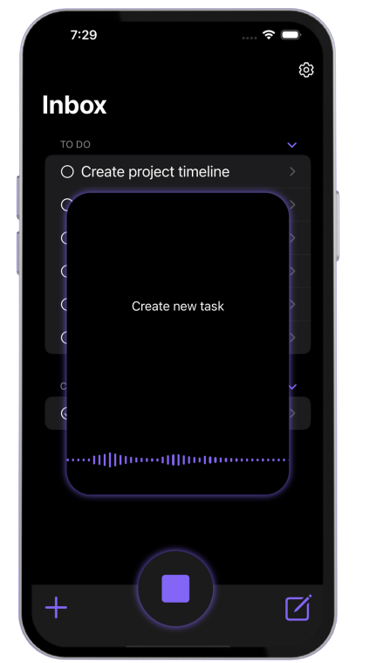Record your dreams — because the mind forgets what the heart wants to remember.
There’s a strange sadness in waking up from a dream you can’t quite recall — the colors, the faces, the story all fading like mist under sunlight. Scientists say we forget up to 90% of our dreams within minutes of waking. Yet, those fragments — the emotions, the symbols, the half-remembered words — often carry traces of our deepest thoughts, fears, and creativity.
What if you could hold onto them?
Vozly’s new feature, “Record Your Dreams,” was designed for exactly that moment — the quiet seconds between sleep and awareness, when ideas and emotions are still fresh. With a single tap, you can record your dreams before they disappear, capturing what your mind remembers in your own voice.
Because dreams aren’t just stories — they’re reflections of how you feel, what you fear, and sometimes, what you need to hear.
The Science of Dream Recall
Dreams are one of the brain’s most mysterious creations — a complex dance of memory, emotion, and imagination that plays out while your body rests. They are your subconscious mind’s language, combining fragments of experience and emotion into surreal, symbolic narratives.
Yet, as soon as we open our eyes, the brain begins to prioritize waking reality over dream memory. Neurologists call this dream decay — the rapid fading of neural activity that encoded your dream just moments earlier. That’s why you can wake up with a vivid scene in your mind — a place, a voice, a feeling — and lose it completely before your morning coffee.
The more you try to hold onto it, the faster it fades. This isn’t weakness — it’s biology. Your brain is shifting from the theta waves of REM sleep to the beta waves of wakefulness, essentially overwriting short-term dream memory with the demands of the waking world.
But there’s a way to interrupt that process — a way to record your dreams and bridge the gap between the subconscious and the conscious.
Speaking your dreams aloud immediately after waking strengthens that neural bridge. The act of articulation — saying it, hearing it, saving it — creates a new memory trace. You’re translating the abstract language of your sleeping mind into something tangible.
That’s the real science behind recording your dreams — it’s not just about remembering; it’s about building a dialogue with yourself.
How Vozly Helps You Record and Reflect
Vozly’s Record Your Dreams feature was built for that fragile window between dreaming and waking — when your brain still holds the glow of the night’s stories.
You don’t have to fumble for your notes app or type through half-open eyes. Just tap the mic, record your dream in your own voice, and let Vozly do the remembering for you.
Each recording is safely stored in your private space, timestamped, and ready to revisit. Over time, your recordings form a personal dream library — a sound journal of your imagination, emotions, and growth.
With Vozly, you can record your dreams and later listen back not just to what you said, but how you felt. Tone, pace, breath — all captured in a way text never could. Your voice becomes a bridge between who you were that morning and who you’re becoming.
Patterns begin to emerge: recurring symbols, emotions, or even people. You start to notice the architecture of your subconscious — what it holds onto, what it releases, what it repeats. And in those patterns, insight is born.
Recording your dreams becomes more than memory-keeping — it becomes mindfulness in motion.
Why Your Dreams Deserve to Be Remembered
Dreams are the subconscious mind’s mirror — fragments of truth told through imagery and feeling. They often hold what your conscious self forgets to notice: creative sparks, buried emotions, or quiet intuitions that deserve to be heard.
When you record your dreams, you’re giving your inner voice permission to speak. You’re treating your unconscious thoughts as worthy of attention — as stories that matter.
Each dream becomes a thread in your evolving self-awareness. Listening to your old recordings reveals emotional growth, recurring desires, even long-forgotten worries that shaped who you are now.
And one morning, while replaying a dream you recorded months ago, you might recognize something — a message your past self left for your present one. A reminder, a comfort, a spark.
Because remembering your dreams isn’t about nostalgia — it’s about understanding yourself in motion.
With Vozly’s Record Your Dreams feature, each night’s whisper becomes a seed of reflection. Over time, those small acts of awareness grow into deeper mindfulness — a clearer connection between what you live and what you imagine.
✨ If you enjoyed this piece, you might also like our post on Decluttering the Mind — a guide to clearing mental space before creativity and clarity can flow.



